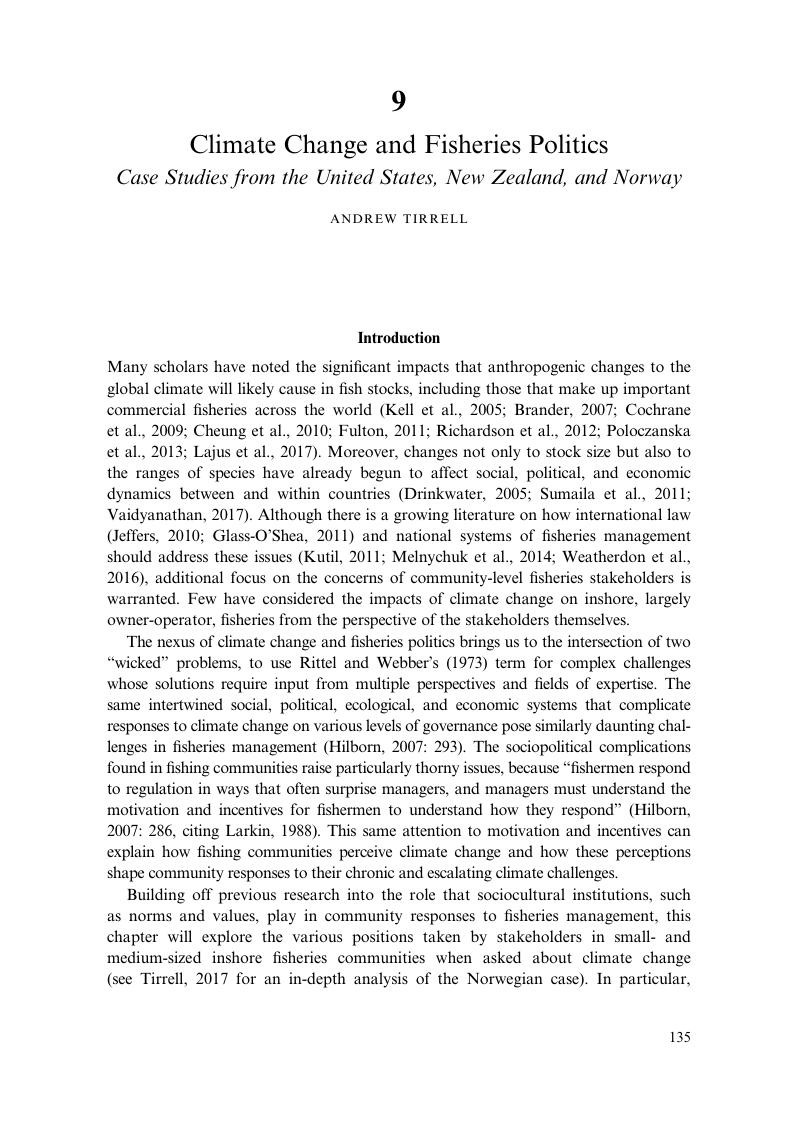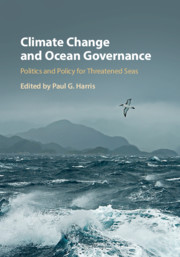Book contents
- Climate Change and Ocean Governance
- Climate Change and Ocean Governance
- Copyright page
- Contents
- Contributors
- Acknowledgments
- Part I Introduction
- Part II Vulnerable Islands and Coasts
- Part III Marine Fisheries and Pelagic Seas
- 9 Climate Change and Fisheries Politics
- 10 Policy Options for Marine Fisheries
- 11 Large Marine Protected Areas and Ocean Resilience
- 12 Climate Change and Contested Marine Areas in the Arctic
- Part IV Changing Polar Seas
- Part V Institutions and Law for Ocean Governance
- Part VI Policies for Ocean Governance
- Part VII Conclusion
- Index
- References
9 - Climate Change and Fisheries Politics
Case Studies from the United States, New Zealand, and Norway
from Part III - Marine Fisheries and Pelagic Seas
Published online by Cambridge University Press: 12 February 2019
- Climate Change and Ocean Governance
- Climate Change and Ocean Governance
- Copyright page
- Contents
- Contributors
- Acknowledgments
- Part I Introduction
- Part II Vulnerable Islands and Coasts
- Part III Marine Fisheries and Pelagic Seas
- 9 Climate Change and Fisheries Politics
- 10 Policy Options for Marine Fisheries
- 11 Large Marine Protected Areas and Ocean Resilience
- 12 Climate Change and Contested Marine Areas in the Arctic
- Part IV Changing Polar Seas
- Part V Institutions and Law for Ocean Governance
- Part VI Policies for Ocean Governance
- Part VII Conclusion
- Index
- References
Summary

- Type
- Chapter
- Information
- Climate Change and Ocean GovernancePolitics and Policy for Threatened Seas, pp. 135 - 149Publisher: Cambridge University PressPrint publication year: 2019



